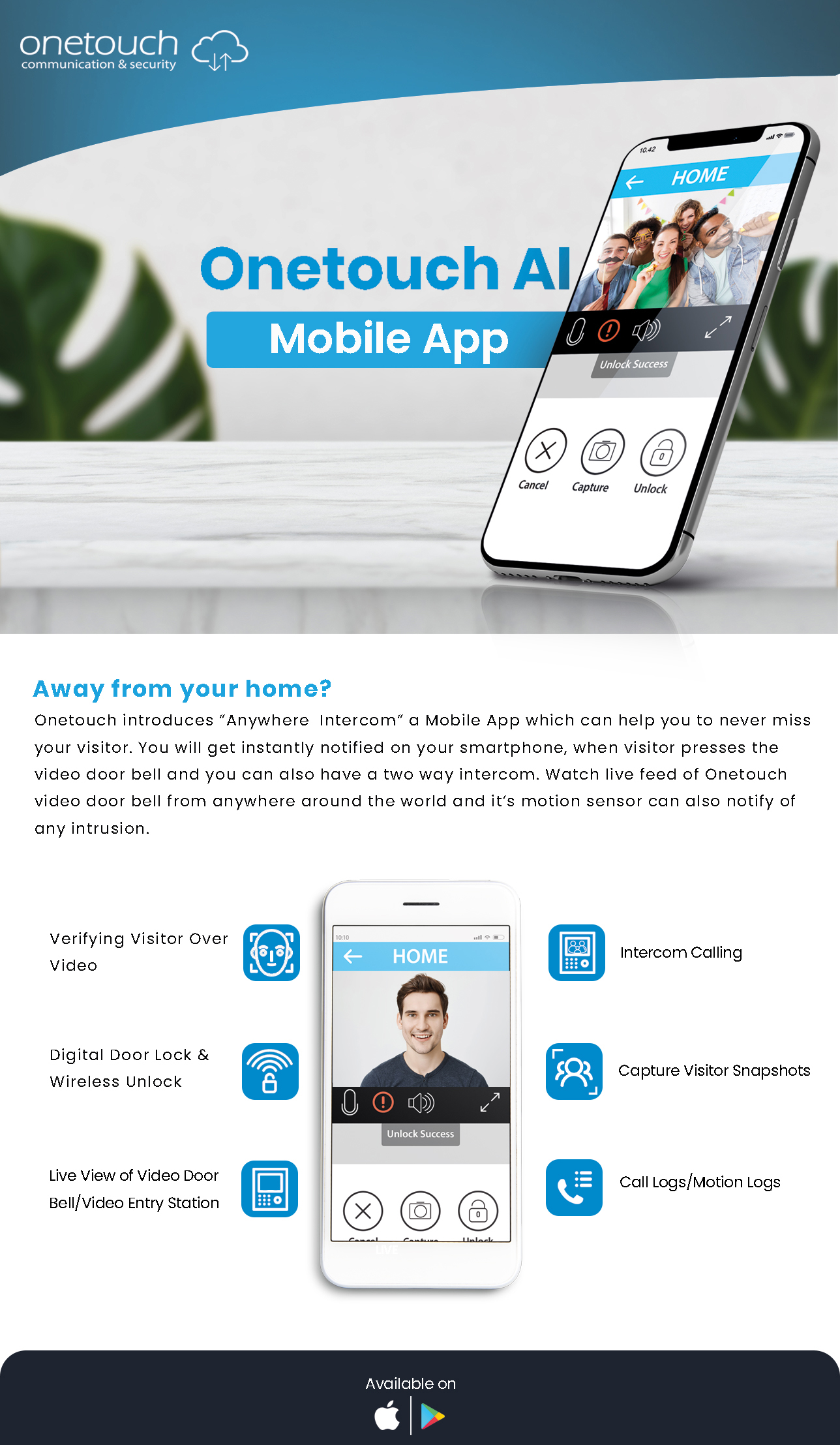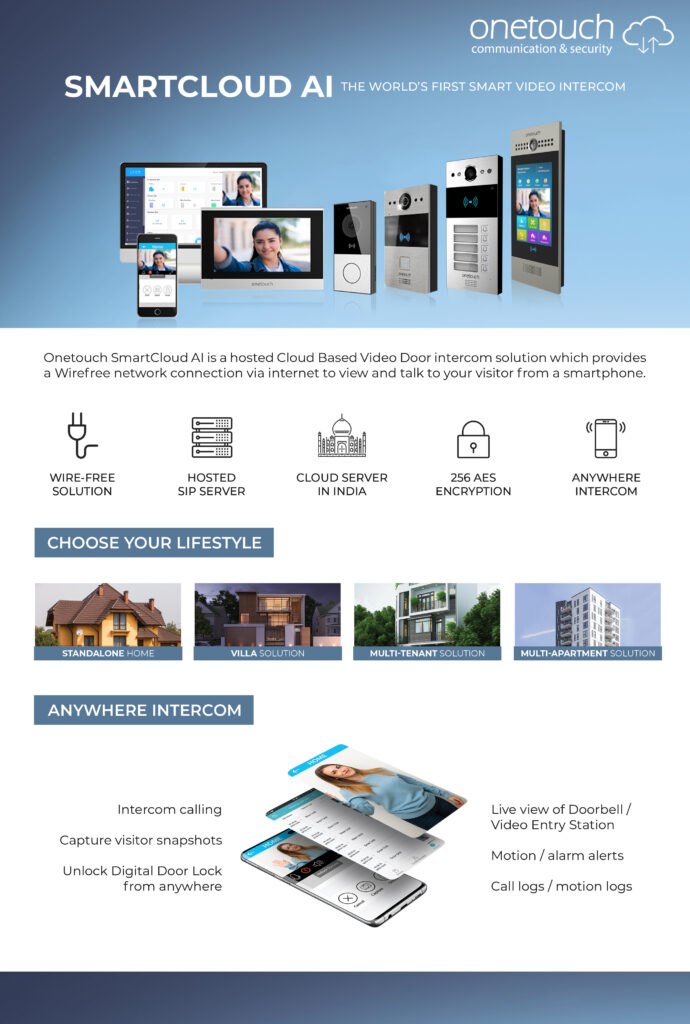Are you worried about home security these days? You are not alone. Luckily, there are advanced options beyond traditional keys. Modern solutions like electronic locks and smart lock for home are now widespread. But what’s the difference?
Electronic locks, sometimes called a digital lock for main door, use electric power and allow the use of codes or cards to secure doors. But a smart lock does much more. Often controllable by your phone, these locks offer extra convenience and features. However, with so many choices on the market, picking the right one can be confusing.
So, is an electronic lock or a smart lock better for your home? We’ll help you decide which is the best fit.
Smart Lock for Home: A Few Things to Note
What exactly is a smart lock? Simply put, it’s a keyless lock you control with your smartphone, with additional unlocking options like a keypad, biometric scanner, or key fob detector as backups. These locks can connect to your Wi-Fi or Bluetooth, enabling remote access. Using an app, you can lock and unlock the door from anywhere. Besides, you can check the activity log to see who came and went, plus manage guest access by creating temporary digital keys. These features make a smart lock for home a truly ‘smart’ addition to your front door security.
Perks of a Smart Lock
A smart lock for home is packed with benefits. Choosing one of these means many advantages! Below are some of them:
- Unmatched Convenience with Keyless Entry: No more fumbling for rusty keys. Your smartphone becomes your key. A smart lock offers keyless entry to your home.
- Remote Access for Complete Control: Imagine being able to control your door from your workplace or while travelling. A smart door lock makes remote access a reality.
- Increased Security: Unlike traditional locks, modern IoT door locks use advanced features such as code encryption, real-time notifications, and tamper alerts.
- Real-Time Monitoring: Want to know who is coming and going? Smart locks provide activity logs and access management for your peace of mind.
- Access Sharing: Do you need to let in a visitor or service provider temporarily? Smart home locks make it easy to grant time-limited guest access.
Potential Downsides of a Smart Lock
While a smart lock for home security systems offers excellent benefits, it’s also good to be aware of the few potential cons. Here are a few things to keep in mind:
- Tech Reliant: The convenience of smart locks comes with tech dependence. Power or home network hiccups could temporarily impact operations, though most have fail-safes.
- Cybersecurity Considerations: Like any connected device, a smart lock could be vulnerable to zero-day exploits and be a potential hacking target. Choose only trusted brands with robust security measures and practice safe home network principles.
- Battery Life Management: Battery-powered smart lock units need battery swaps. However, this is infrequent, and notifications generally alert you in advance.
- Upfront Cost: The advanced features of smart locks can mean a higher initial price tag than standard electronic door locks. However, long-term value and convenience often outweigh this.
Electronic Locks: What You Should Know
If a smart lock for home is about “smart,” then electronic locks are about “electronic” security. An electronic lock replaces mechanical actions with electrical ones. These digital lock for main door systems rely on electrical current to engage and disengage the locking mechanism. Instead of keys, you typically use a keypad to enter a designated code. Or, some models use card readers. While not as “smart” as a smart lock, they are a good, dependable alternative for your entryway compared to traditional lock-and-key systems.
Considering Digital Locks? See Onetouch’s Range of Options.
Pros of an Electronic Lock
A digital lock for main door comes with its own set of appealing benefits. Here are some key advantages:
- Straightforward Operation: Electronic locks are commonplace for their user-friendly design. Easy code entry makes them simple for everyone, including seniors, to use.
- Reliable Operation: While electronic, such lock systems usually don’t rely on a constant internet connection. In situations where Wi-Fi/Bluetooth reliability is a concern, they offer robust, consistent performance.
- Diverse Options for Every Need: From basic to more feature-rich, the market likely offers an electronic lock that fits various budgets and security requirements.
- A Solid Step Up in Security: Electronic locks provide a notable improvement in protection against unauthorised entry compared to traditional keyed locks.
Potential Limitations to be Aware of with an Electronic Lock
Even with the benefits, there are a few points to consider for an electric door lock:
- Limited Smarts: An electronic lock might not be your first choice if you want advanced smart home features like IFTTT integration and access management.
- Less Remote Functionality: Remote access and app-based control are generally not features of standard electronic lock systems.
- Power Dependent: Like smart locks, regular electronic models rely on an external power source. Outages could be a temporary issue except for units with an internal backup battery.
- Possible Installation Complexity: While often straightforward, installing a digital lock for main door may require a bit more attention than a basic lock, depending on the modern and your door setup.
Electronic Lock or Smart Lock for Home: Making the Right Choice
So, a smart lock or an electronic lock for your main door? It all comes down to your priorities. If you’re a tech enthusiast wanting all the latest smarts, a smart door lock is likely ideal for your home. You’ll love the app control, remote access, and IoT integrations. However, should you prefer reliable security that is more straightforward to use and dependable in its core function, an electronic lock is perfect. You get keyless entry and enhanced security without the added complexities. Consider your budget, too, as smart locking systems can be a bigger investment initially.
In the end, both offer better protection than traditional locks. The “right” choice depends on your needs and what you value most.
Need Help Choosing? Ask Onetouch Today.
Frequently Asked Questions
1. How difficult is it to install a smart lock or digital lock for main door?
Installation varies by model. Many smart lock for home units are designed for DIY, often replacing just the interior part of your existing deadbolt. Installation can sometimes be a bit more involved, potentially needing adjustments to the door. Always check the product’s installation guide or consult experts.
Related Read: DIY vs Professional: What’s Best for Digital Door Lock Installation?
2. What happens to these locks during a power outage?
Most smart and electronic lock systems have battery backups. Some electric locks may rely on mains power with battery fail-safes. During an outage, battery power will typically allow operation for a period, ensuring you’re not locked out. It’s good to check the battery levels regularly.
3. Are smart locks truly secure against hacking?smart
Reputable brands use strong encryption and enforce best security practices. Like any connected devices, risks exist, but good brands activity work to minimise vulnerabilities. Choosing trusted models, keeping software up to date, and using strong passcodes are key to maximising smart lock security.
4. Will a digital door lock from Onetouch work on my door?
Compatibility depends on the specific lock model and your door type. Onetouch offers various smart digital door locks (among myriad other home security systems) designed for standard doors. Door thickness, material, and existing hardware can affect fitting. Check Onetouch’s product specifications or consult experts for advice.








